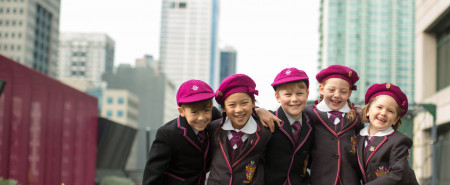Top Private School in Melbourne Says 'Cognitive Flexibility' Key to Learning and Creativity

MELBOURNE, Australia, August 19, 2021 (Newswire.com) - Originally coined by scientists in the 1960s, 'cognitive flexibility' is about being flexible in the way someone learns. In essence, it is the ability to adapt behaviours and thinking in response to the environment. Regarded as one of the best private schools Melbourne wide, Haileybury says flexible thinking is the key to creativity and supports academic work and skills such as problem solving.
According to Haileybury, cognitive flexibility is a skill which enables people to switch between different concepts or adapt behaviour to achieve goals in a rational way. Unlike working memory, it is largely independent of IQ. While IQ is often hailed as a crucial driver of success, particularly in fields such as science, innovation and technology, creativity is also an important quality for accomplishment in these areas.
Haileybury explains that several factors challenge cognitive flexibility, including confirmation bias, in which people shape the information given to them to match their view or seek out information they agree with. Information bottleneck can also be an issue, where people can't look clearly at the information in front of them because there is too much to process. Additionally, for many people, following the same steps and making the same decisions as in the past because they are familiar and comfortable is a challenge to cognitive flexibility.
Students who exhibit strength in cognitive flexibility can handle transitions easily, shifting between subjects and tasks in stride. Haileybury says these students often have success in tasks that require them to apply learning in one area to problem solving in another context.
Deemed the best private school Melbourne wide, Haileybury says the good news is that students can be trained in cognitive flexibility. Common strategies for enhancing cognitive flexibility resembles strategies for boosting divergent thinking, creativity and openness. To think flexibly, people must be able to draw from multiple reserves of knowledge and memory to engage with a task or problem.
In response to the COVID-19 pandemic, students have been forced to adapt their daily living, learn school lessons in a new way and socialise differently. According to Haileybury, this is training them in cognitive flexibility and helps students build higher resilience to negative events in the future.
As the top private school Melbourne wide, Haileybury says teaching students cognitive flexibility is essential to help them maximise their potential and also for society to flourish in the future.
Source: Haileybury
